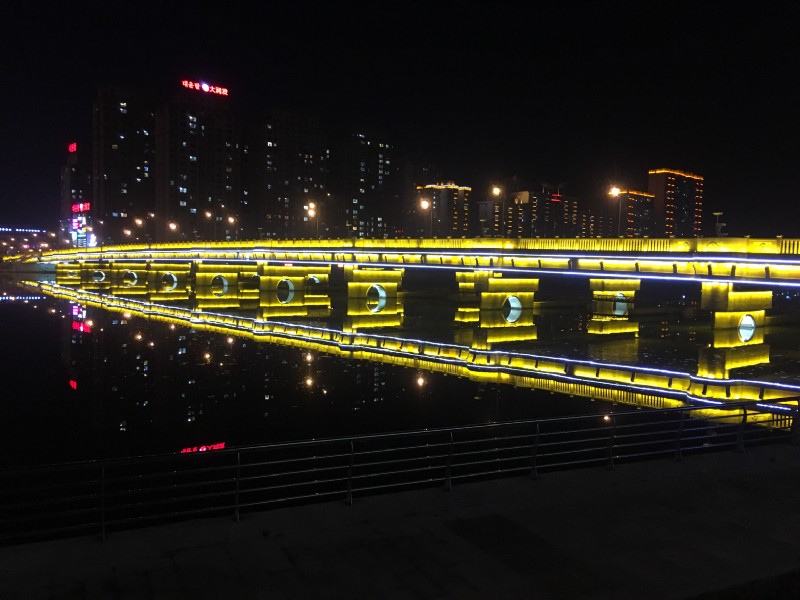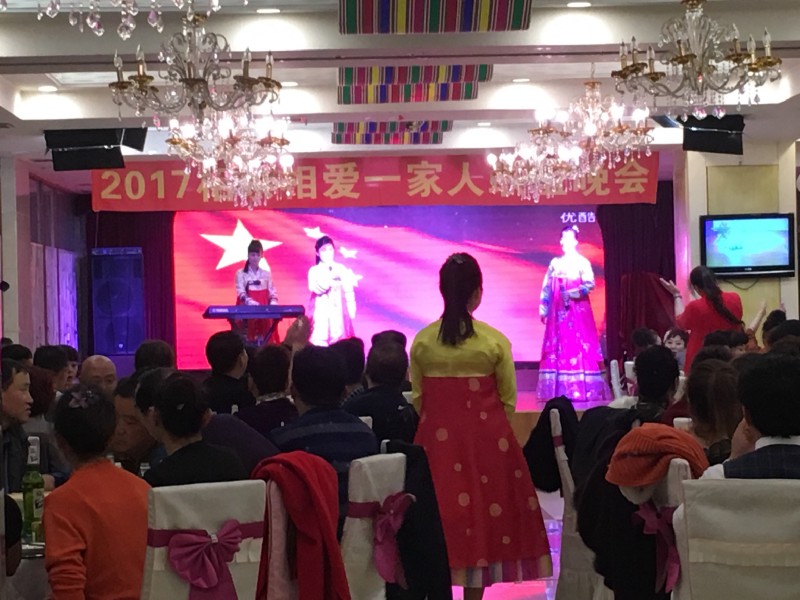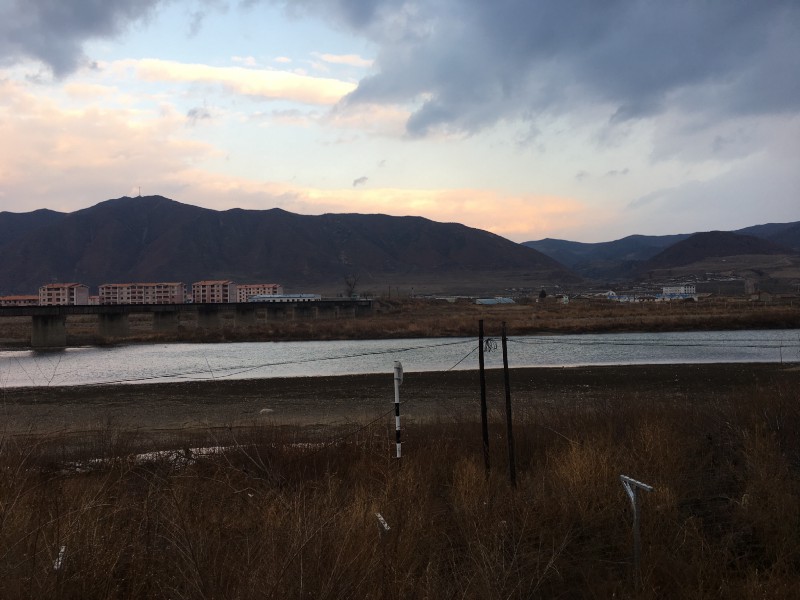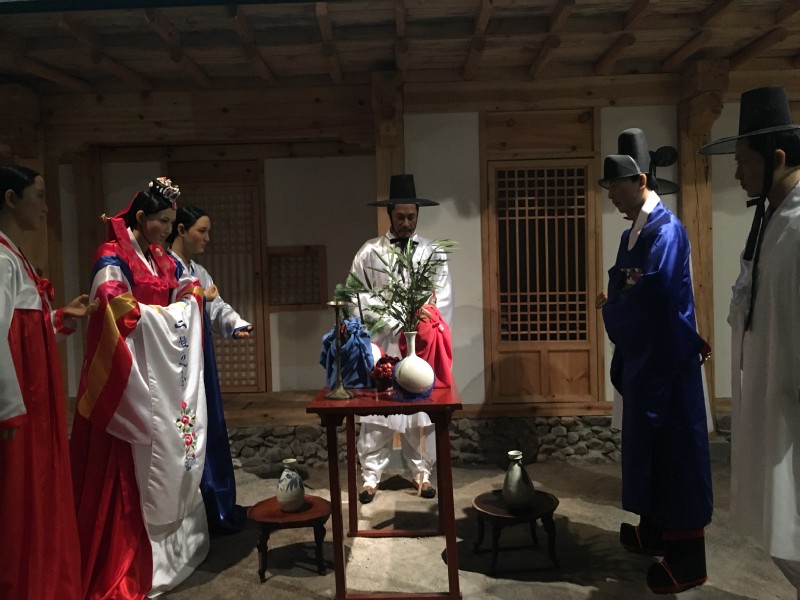As a Korean American, I’ve been curious about the Korean Chinese. I’ve been pondering what happens to my Korean identity when I cross the Pacific, and what happened to Koreans who crossed the Yellow Sea? Or the better question is Koreans who crossed the Yalu or the Tumen, the two rivers demarcating China and Korea only five meters wide at some places. Unlike Koreans who became Americans fresh off a boat or an airplane, Koreans walked and waded to become Chinese.
As Korea likes to call itself a shrimp between whales, I’ve always been fond of underdogs. Perhaps that’s why I love China. Although resurgent China has restored its imperial pomp, it behaves like an insecure nouveau riche since it lags behind America in hard power and behind Europe in soft power. While China can be a bully to its minorities and neighbors, it still cringes at the memory of its century of humiliation and its quarter century of Maoist cannibalism. For better or worse, China’s rise has also colored Americans’ gaze on Asians, and I feel more respected in America thanks to China. Analogously, how have the economic rise of South Korea and the nuclear rise of North Korea affected Chinese gaze on Koreans?
So I flew to Yanji, the capital of the Yanbian Korean autonomous prefecture at the southern tip of Manchuria. My Korean grandma was born there, as her father was a driver for the Japanese imperial army. As my Mandarin is subpar, I was glad to see all the Korean language signs at the airport shops and booths. About a third of some 2 million residents of this prefecture are ethnically Korean, or chaoxian people as Chinese call them. Chaoxian, or Chosun in Korean, was the name of the Korean dynasty that ruled the now divided peninsula for half a millennium until Japan swallowed Korea in 1910. This term now refers to North Korea, which eerily evokes the fallen feudal monarchy.
The first wave of Korean immigrants was dragged here as slaves to the marauding Manchus after the Korean king kneeled before those “barbarians” in the 17th century. The second wave was a refugee crisis in the late 19th century when northern Korea was hit with a famine. Another famine in North Korea a century later would extinguish some 2 million lives. The turn of the century saw the influx of Korean independence fighters, and included among the hungry and the colonized was Kim Il Sung, the founder of North Korea who made a name for himself as a guerilla fighter. Many Sino Koreans returned to Korea after Japan surrendered in 1945, but the majority stayed put as Manchuria had become their new home. As most Korean Chinese were peasants, they unwittingly sided with the Chinese communist party during the civil war and were granted autonomy in the early 1950s.
Given this turbulent history, what relevance and resonance does the Korean Chinese experience have for Korean Americans? Other than the P.R.C. and the U.S. being home to the two largest Korean diaspora that number about 2 million each, what do I share with Sino Koreans? When these superpowers were locked in the deadliest war in Korean history on the Korean peninsula three scores ago, several million lives perished including the son of Mao.

The first Sino Korean I met was a lady next to me on the plane, and the next Sino Korean I met was a lady next to me in a cab. Both seemed about my mother’s age, but I couldn’t determine their ethnicity from their appearance alone. Both helped me find my hostel, and they flip flopped between Chinese and Korean in South Korean and North Korean accents based on their interlocutor. Many Sino Koreans found opportunities in South Korea once China and South Korea normalized relations in 1992, and the two ladies led dual lives between Yanji and Seoul’s Chinatown.
After these two ladies, encounters with Chinese Koreans became infrequent. My hostel staffs, cab drivers, and restaurant servers were all Han Chinese. The only Sino Koreans I met were a professor and a businessman I was introduced by my former professor. The only other guest at the only hostel in Yanji was a Han Chinese law student from Xian who came in from Mt. Changbai (or Paektu in Korean), the highest peak in Korea where the son of heaven descended to mate with a bear-turned-woman to engender the Korean people. (The bear had to eat only garlic for a hundred days in a cave for this honor). My hostel mate wanted to taste Korean culture, but was disappointed on our first night out strolling through neon lights and chowing overpriced Korean food. She left early the next day.
Morning meetings and interviews rarely bite into lunch in Korea and America, but both of my interviewees took me out for lunch and paid for my noodle soup, Mapo tofu, and a pool-sized Sichuan fish soup. They made intros on the spot by calling their colleagues when I asked questions they couldn’t answer. They were third degree connections, but they made me feel like a first class citizen. Was it because I’m an Anglophone South Korean that they showered me with such largesse?
The Korean Chinese businessman Mr Pu (or Mr Park in Korean) grew up in northern Manchuria and worked for the communist party before launching his company in Yanji. I didn’t really understand his media business on the sixth floor of the province tourism office that didn’t have an elevator, but he showed me pictures of himself with the leaders of both Koreas. As the secretary-general of the Korean Chinese Entrepreneurs’ Association, he was invited to the Korean diaspora gatherings hosted by both Seoul and Pyongyang. He stated that whereas South Korean president gave him a watch worth about $250, the dear leader didn’t hand out souvenirs. As both Seoul and Pyongyang try to curry favor from Beijing, Chinese Koreans seemed to occupy a privileged intermediary position.

After coffee and lunch, Dr. Fang (or Bang in Korean) treated me to a festive dinner at a giant 4-storey North Korean restaurant where we got supersized plates of spiced eggplants, Korean delicacy raw beef, and North Korean pollack. We were also asked if we wanted North Korean ladies in traditional Korean dress to enter our private room and sing for us. I replied yes to the smiling North Korean waitress without thinking, but declined after the professor whispered that we have to tip about $15 for two songs. We could overhear their raucous singing from the room next door, and I was glad we didn’t pay. I also didn’t understand because they sang in Chinese. Several major restaurants and hotels in Yanji hired dozens of North Korean women as server-cum-musicians, and these Korean sisters would have to return home by the end of year.
Koreans have the expression “namnambuknyo”, which means that Korea’s best men are from the south and the best women are from the north. I’m biased as a South Korean male, but it’s true. Two North Korean ladies at the front desk of the Pyongyang Hotel were the two most beautiful women I’ve met since my ex, and I exchanged 100 dollars to yuan for an excuse to chitchat with them. They liked the Yankee money more than me.
North Koreans were part of the reason I was in Manchuria. I heard that North Korea-China border remains porous despite official sanctions from Beijing, and that China’s first foreign university here is in crisis. I knew tracking smugglers wouldn’t be easy, but I liked the idea of a chase. My second story was to be on the founder and president of the first foreign university in China who also established the first foreign university in Pyongyang, but that’s another story.
Once I encountered a few North Koreans, however, I realized the futility of my investigative venture. These North Koreans seemed to lead better lives in China than in North Korea, and what’s the point of ferreting them out for my journalistic vanity? I was told at Yanji’s biggest market that smugglers continue to cross the Tumen River to import North Korean veggies and seafood. They told me North Korean fish taste better because China is industrialized and polluted, but I worried that North Korean fish is radioactive. They added that the price of North Korean produce spiked about 30 percent since the sanctions.

After giving up the illegal trade story, I became a tourist. I hopped on an afternoon bus to the border town of Tumen, where I bought North Korean banknotes and cigarettes, and gazed across the river at North Korea’s pink apartments. Czech writer Milan Kundera wrote that socialist art is kitsch, and you could see why here. I could also see North Koreans go about their daily lives as dark dots. Standing between us was a wire fence on the Chinese side installed about seven years ago. A garden was planted in front of it and a white balloon was stuck behind it. Hanging over the fence was a navy jacket, which might have been used by one of 30,000 North Korean defectors who left the totalitarian regime. Unlike the inter-Korean Demilitarized Zone, the Korea-China border was serene and peaceful.
On my last full day, I visited the Yanbian Museum. I almost didn’t go because it was further from the city center than the airport was, but cabs are cheap in Yanji. It had been difficult to feel Korean in Yanji, as Korean culture was confined mostly to cuisine. I’ve traversed the Uyghur areas of the Silk Road and the Tibetan areas of the Tea Horse Road. Despite Beijing’s efforts to maintain their empire through ethnic erasure, Uyghur mosques, Tibetan temples, and markets stood proudly as reservoirs of culture. The markets of Yanji didn’t sell particularly Korean products, and I didn’t see any Korean temples. As in South Korea and America, Chinese Koreans seemed to prefer Jesus to Buddha.
It was surreal to see Korean culture taxidermized in wax figures wearing Korean garbs. The museum felt like a state-authorized compensation for the lack of Korean culture in everyday lives, but I also learned a few factoids about my motherland. I’ve never seen traditional Korean wedding and funeral ceremonies. It felt bizarre that I was learning about Korea in these hinterlands, and I wondered if these Chinese Koreans had preserved some nuggets of Korean culture that the two Koreas lost in our breakneck rush to modernize.

A museum sign stated bluntly that “Koreans like to sing and dance,” and they were not just talking about K-pop. Korean Chinese reached the stratosphere of Chinese arts that Korean Americans can only envy. The composer of the anthem of the People’s Liberation Army during Mao’s reign was Korean Chinese Zheng Lucheng. China’s father of rock Cui Jian whose song “Nothing to my name” became the anthem of the student protestors in that fateful summer of 1989 is also Korean Chinese. China’s premier choreographer turned first transgender celebrity Jin Xing is Sino Korean.
Koreans are the 14th largest among the 55 officially recognized ethnic minorities in China, and one of the six that have preserved written language. Koreans are among the most highly educated and the wealthiest minorities in China, just as they are in America. Koreans first landed in America as sugar cane workers in Hawaii, and then as students, independence activists, then laundromat and restaurant owners in continental America. Just as North Korea’s inaugural leader Kim spent his formative years in northeastern China, South Korea’s augural president Rhee Syngman spent his formative years in northeastern America.
Given the current stalemate on the Korean peninsula, perhaps Korean Americans and Korean Chinese can help catalyze dialogue between Seoul and Pyongyang. Prof. Bang asked me on my last night in Yanji if I wanted to partner with her in comparing Korean American and Korean Chinese identities, and I said yes. Diasporas communities often share more among them than they do with their homeland, and Koreans making it in the two superpowers ought to be more interested in each other.

Comments powered by Talkyard.